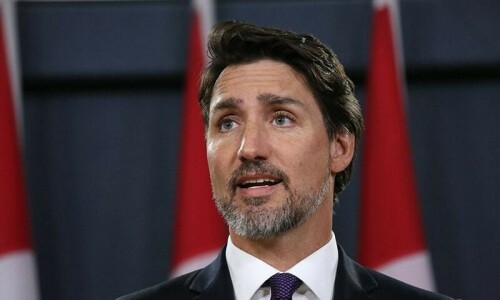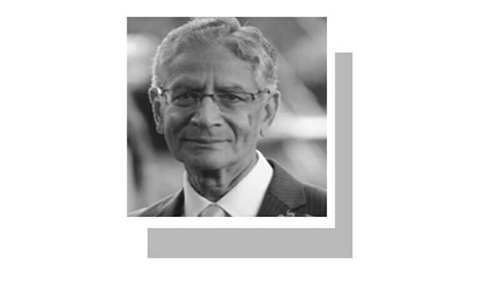GENEVA, Feb 2: A senior United Nations aid official called on Thursday for a halt to arms sales to Africa, saying it would be more effective in addressing the continent’s poverty than charity rock concerts or debt relief.
Dennis McNamara, special UN adviser on internal displacement, slammed world powers for neglecting some 12.5 million Africans uprooted within their countries, who form half of the world’s internally displaced persons (IDPs).
He accused the West of supplying the weapons fuelling African conflicts which leave civilians homeless — and prey to war crimes, hunger, disease and rape — while greedy companies exploit the oil and mineral wealth.
“Guns are at the heart of the problem ... There is one slogan I would like to suggest for 2006: No Arms Sales to Africa. Zero. Not an embargo, not a sanction, a voluntary cessation of all arms sales to Africa,” Mr McNamara told a news briefing.
“The kids on the streets of Nairobi, Khartoum, Abidjan and Monrovia have guns in their pockets or up their sleeves ... We provided the arms. We the West, we the G8,” he added, referring to the Group of Eight industrialised nations.
Mr McNamara dismissed large rock concerts — such as the Live 8 series held worldwide last July under the slogan ‘Make Poverty History’ to pressure the G8 — as focusing short-lived attention on starving babies while distorting deeper problems.
“The pop concerts save the kids for a short period of time, they do nothing about the underlying problems,” Mr McNamara said.
“Twenty years after Live Aid, the farms of the Ogaden of Ethiopia are as impoverished and likely to have famine as 20 years ago. Nothing has changed on the ground, in fact it has gotten worse,” he added.
He said debt relief was a good idea but only one part of a much bigger issue.
“The rape victims of eastern Congo don’t give a damn about debt relief. They want to know who is raping them, who has provided the guns and can they get HIV tests,” he added.
Yet refugees or ex-combatants returning to post-war areas ranging from Angola, southern Sudan to former Zaire find that basic services such as water, health and education are lacking amid massive unemployment, he said.
“It is all very well to have these important slogans, but it is not enough. The food aid and humanitarian aid is often a substitute for real political, economic and security action.
“This is the danger of humanitarian aid. It is a palliative, a necessary palliative, but we should stop kidding ourselves that it is a solution ... In fact, it detracts from solutions.” —Reuters













































